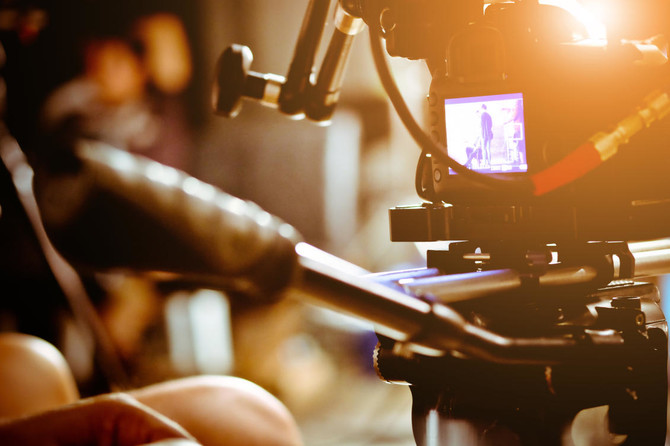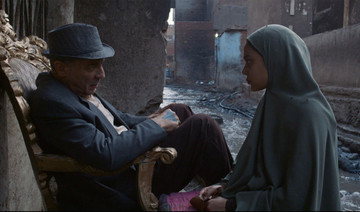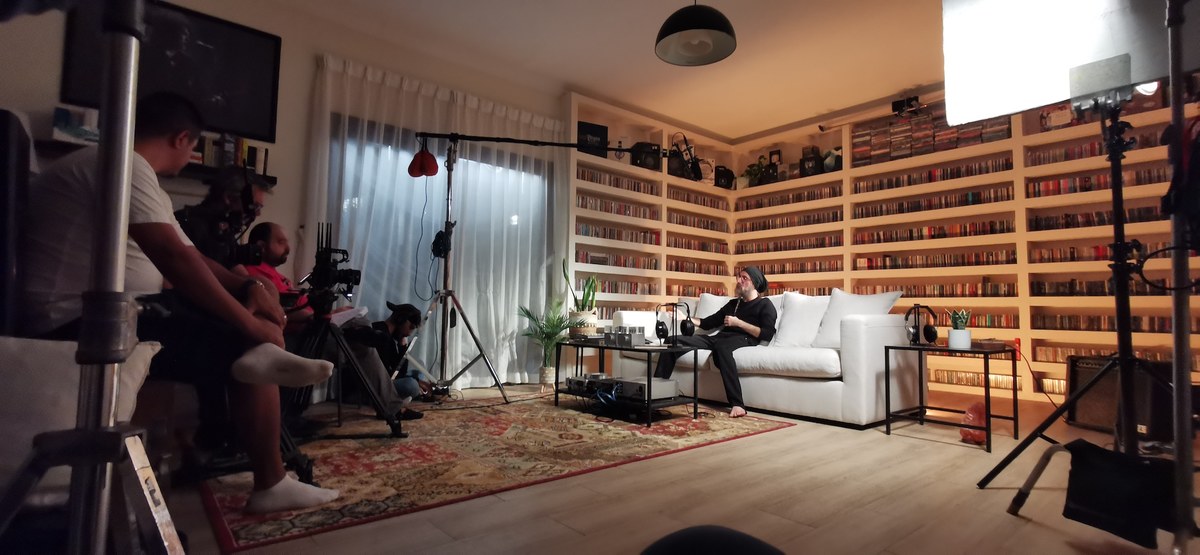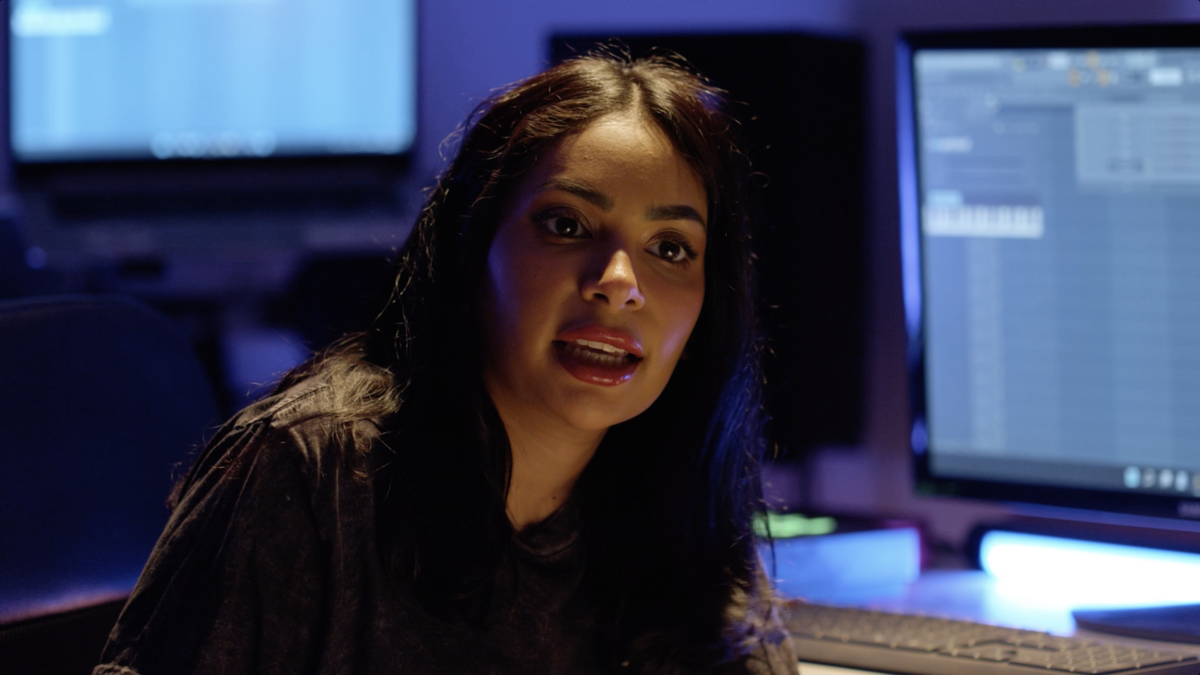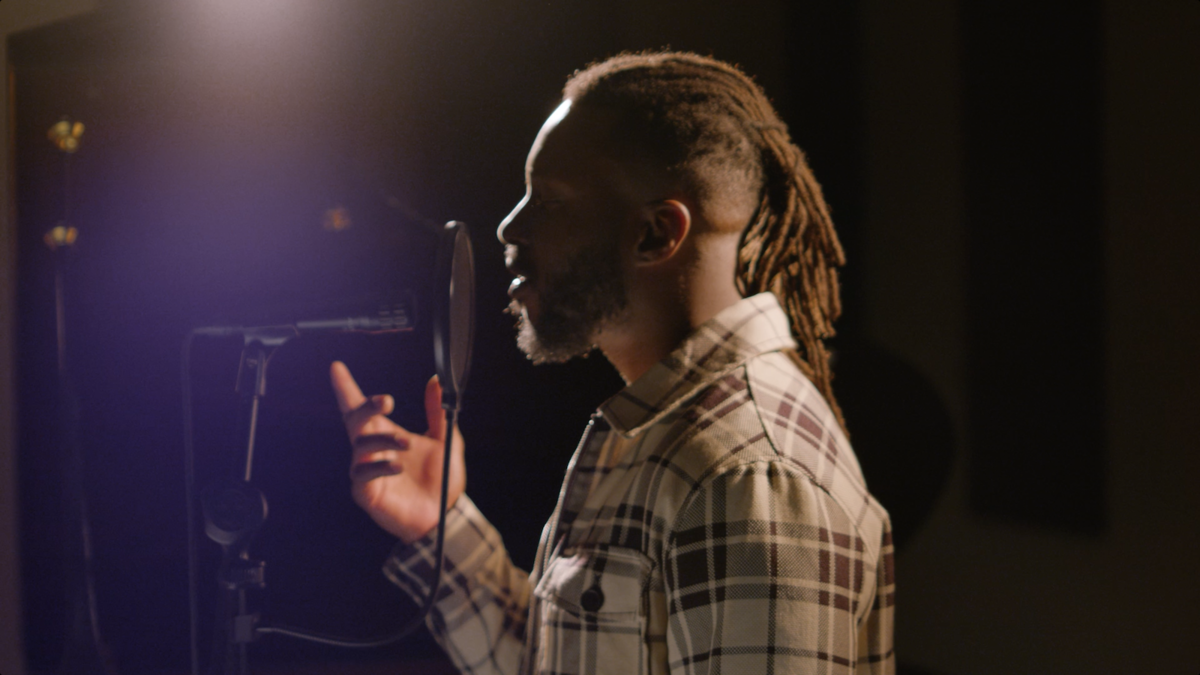LONDON: “I left Baghdad without a homeland, without a family, without knowing the fate of my missing father. Did I choose exile with her empty roads, or did she choose me — hugging me tight to her ice-cold chest, dressing me in uncertainty, fear and need?”
These words from the 2017 film “Stories of Passers Through,” produced and directed by Koutaiba Al-Janabi, give some idea of the pain and loneliness he experienced after fleeing Iraq as a young man of 17. It took Al-Janabi 30 years to finish the film of his long journey of estrangement.
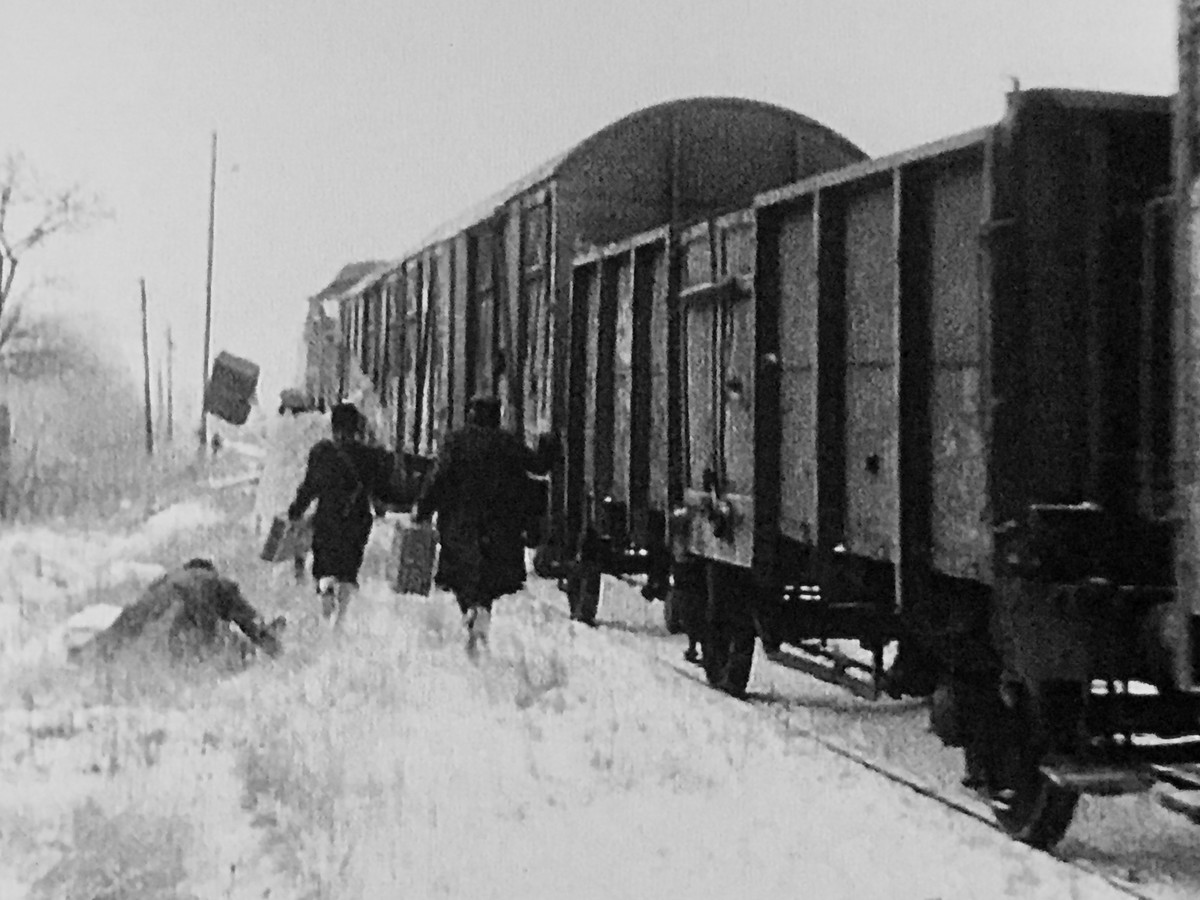
Stories of Passers Through. (Supplied)
For international film critic, author and curator Joseph Fahim, it is important that this type of film is seen. That’s why he chose to include it in the recent SAFAR film festival organized by the Arab British Center, which he curated under the theme “A Literary Journey through Arab Cinema.”
“I chose (that film) because I wanted to highlight movies that have been overlooked, as well as new discoveries,” he tells Arab News.
Fahim was disappointed that the film fell off the radar after screening at the Dubai International Film Festival in 2017. But he has a theory about why quality work can get buried.
“These days, if you want your movie to go lots of places you need financial backing,” he says. “Al-Janabi didn’t have such backing or connections. Financial powers control cinema.”
Fahim’s job as a film critic has given him extensive insight into all movie genres. And he sees a need for a major shake-up in the system that has the international movie industry in a stranglehold.
“The global film system is not really working. There are way too many movies being produced that nobody is watching. Supply far exceeds demand,” he says. “The decision makers think they know what makes movies work, and what will sell and what won’t. In many cases they are wrong, and you get so many stories of a similar type. The decision makers need to be changed.”
One particular change Fahim feels is urgently needed is a cultural shift away from entrenched Western influences.
“The fact of the matter is that a high proportion of co-productions, distributors and producers keep demanding the same stories and same themes. There is an element of cultural colonialism still in place that dictates what kind of stories can be told,” he says. “Why would a decision maker from France come and tell a Palestinian filmmaker that his story could be set in Bordeaux rather than Ramallah? Who the hell is he to say that?
“How to break this mold is the main challenge. It requires a lot of things,” he continues. “There are not many resources in the Arab world — and of course there is the issue of censorship.”
Fahim recognizes that any such cultural change will be slow, especially taking into account the turmoil afflicting many Arab regions. He points out that Lebanon has just postponed the Beirut International Film Festival due to the country’s turbulent political and economic situation and the unrest on its borders.
“Everyone is super-scared. Nobody wants to come. Investors are staying away, and the banks are indicating that things could get worse,” he says. “It’s tough times. And even those countries that are stable have problems with censorship.”
Against this backdrop, he regards the recent opening up of cinema in Saudi Arabia as a positive.
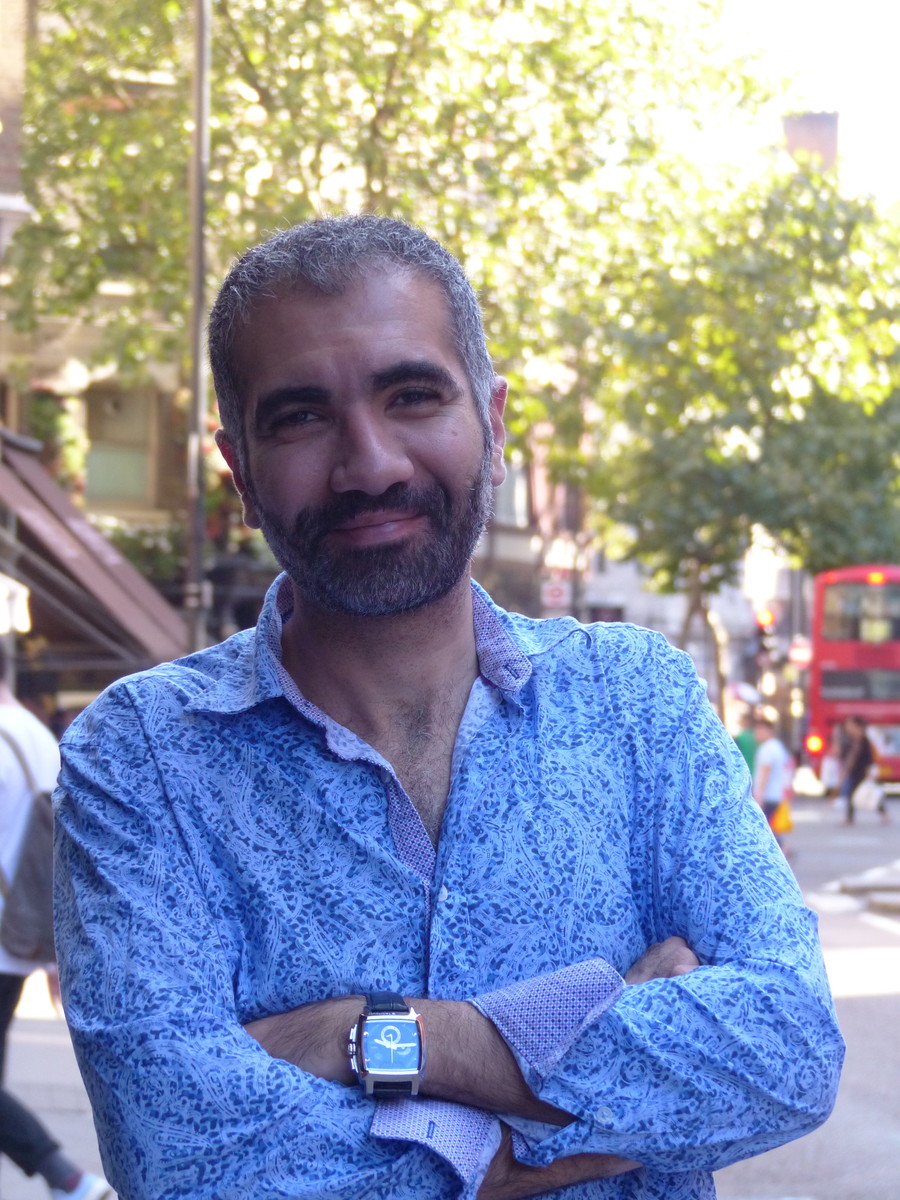
Joseph Fahim. (Arab News)
“The fact that filmmakers, for the first time, have the resources — and some freedom — to create work is a great thing. The fact that people can now see movies in the country rather than going to Bahrain is great. I would assume that, at some point, Saudi Arabia will have a film festival, which will be intriguing.”
Fahim is well-versed in Saudi Arabia’s admittedly limited cinematic history. “I have followed Saudi filmmakers for over a decade,” he says. “I think I was one of the first to write about Haifaa Al-Mansour and her wonderful movie ‘Wadjda.’”
Another reason for optimism about the state of regional cinema is that Fahim has a packed schedule in the near future.
“I will be on jury duty in Turkey, then I’m giving a workshop about Arab cinema in Beirut and then I might be going to Ramallah for a film festival. It’s endless,” he says.
That constant travel might be a good omen for the health of regional cinema, but Fahim, it seems, would be happy to have time to settle. He has a house in Cairo but is hardly ever there as all his family and friends have left the country. He hasn’t worked in Egypt since 2014. He is clearly depressed by the failure of the Arab Spring and the disruption it has caused, not least to filmmakers.
At the moment, he is living, like so many from the region, like a nomad — “out of a suitcase.”
“I don’t know what home is.,” he says. “I don’t have any family left in Egypt.”
But films offer him some solace.
“Movies have been one of the few constants in my life. I still remember the very first movie I saw – “The Wizard of Oz” — when I was four. I also recall seeing Fellini’s “La Dolce Vita” at a cultural center and going on to discover that there were these great filmmakers called Ingmar Bergman and Luis Buñuel and so on. I’m 35 – I have been working for more than 13 years and I’m still discovering something new every day. That’s what’s exciting about cinema.
“Why do we love stories – why do we still need stories? They give us an illusion of meaning. That’s why I have always been attached to stories. There are so many variables — love of the image, beauty, honesty — so many things,” he continues.
With such passion for his subject, it’s no surprise that, for all of the difficulties the industry faces, Fahim is optimistic about the future of Arab film.
“Just look at the profile of Arab cinema this year,” he says. “We had two Oscar nominees (“Last Men in Aleppo” and “The Insult”). Lebanese director Nadine Labaki won the Jury Prize at the 2018 Cannes Film Festival for ‘Capernaum.’ We had two movies that won in Venice and another that won in Locarno. Arab cinema has become an indispensable force and it’s also doing very well at the box office. This is a fascinating period. Right now, the main challenge is achieving consistency and figuring out how Arab filmmakers can create the movies they want to create.
“The situation in the Arab world now is difficult. But, for me, that means there is fertile ground for great cinema — for creators to try and work around the system and create great stories,” he concludes. “There are so many great stories in the Arab world.”


